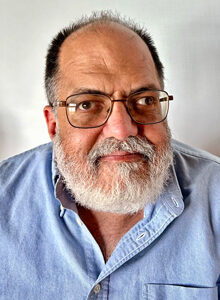Time changes our framing of incidents. When they go poorly, it’s not unusual to replay them in our minds in search of a more acceptable arc. This narrative is what I’ve learned from a situation that resolved well but which has also coughed up useful lessons.

In the two or three years after my diagnosis with what was then called Asperger’s Syndrome at the age of 24 and the end of my postgraduate studies, I decided I wanted to stay in the city where I was. I moved to an apartment on the outskirts of town, found a series of temporary jobs, began a more long-term part-time job that ended up lasting from 1997 until the beginning of the pandemic, and generally started finding ways to settle into my post-school life.
Slower to settle in was my understanding of what my new diagnosis meant. I had been misdiagnosed for a long time and initially resisted the new one. It was several years before I saw how it helped me to understand and tell a more coherent story about parts of my past and think differently about my future.
I remember reaching these insights from an unplanned combination of life experiences that included therapeutic horse riding, attending conferences for people on the spectrum and their families, reading some very interesting articles, and having good conversations with members of the community. The horse riding fit in there when one of the articles I read discussed proprioception, your sense of your body in space – and the vestibular sense, which is the sense of balance, and how horse riding seemed to help some people on the spectrum with these senses.
Sometime during my twenty-seventh year, I attended a coming-of-age ceremony for a relative. This was held fairly near where my parents lived, and I was visiting. I had, and have, much love for most of my family and was glad to be there. Celebrations and parties, however, I approach more ambivalently. Some do go well. Too often, I feel like I’ve fallen on my proverbial face.
After joining in the ritual, listening to the appreciated celebratory speeches on behalf of the honoree, and participating in dinner, I accordingly braced myself for the party. As I had dreaded, the music was chaotic, repetitive, and very loud, and for me, unchosen and also at that moment, headache-inducing. Although I was steeling myself to barrel through the onslaught and not make a scene, my sister saw that I was closing in on myself and offered to drive me back to the parents’, an appreciated offer which I accepted, especially because of my lack of a license and correlated limited mobility. No further incidents interrupted that evening or week that I can remember.
A year later, in December 1997, I applied for a job at a peer-run mental health social club as a part-time staff person. I worked there for over two decades while taking other part-time jobs, too, and learned a fair amount from them. I also went back to school briefly to augment my computer skills. The social club, meanwhile, transitioned into a peer support center and offered useful staff trainings – mental health first aid, listening, and peer support certification-related training, for example.
These training sessions were not only helpful for my work as a staff person, but also for me as an individual on the spectrum. Learning about the Wellness Recovery Action Plan (WRAP), for example, encouraged me to write down specifically what behaviors were signs that my mental health might be doing worse. The Listening course encouraged patience and paying attention not to what we are convinced someone will say but what they do say. A Mental Health First Aid course concentrated on skills useful for providing help to stabilize a situation before a professional arrived. I remember how often I felt dubious about these courses beforehand and how often they seemed useful later.
Even after I was let go from the peer support center, along with much of the staff, due to the start of the pandemic, friends suggested resources in the community like Personalized Rehabilitation Orientation Services (PROS), which offered courses to qualifying people on the spectrum and other mental health consumers, including various Dialectical Behavior Therapy (DBT) courses, yoga, employment discussion and counseling, and more. Other supports that I have taken advantage of and have been invaluable include New York Self-Direction services and supports, job coaches, and people willing to provide organizational and food-related support.
It was a combination of advice from a friend – about my having left a theatre in a huff and better solutions to similar problems – and some of these courses that have had me rethinking some of my common patterns of behavior. I have come to notice my passive or passive-aggressive tendencies and have begun to find ways to identify and hopefully improve my behaviors.
I still have a strong temptation to give my ill-at-ease younger self some advice. His impulse was to push through, to not make a scene, to do the best one could without asking to go home, if that even came to mind as a solution. In fact, holding it in, or else leaving in a huff was a pretty good description of what was wrong with my approach in those days, and it took me over a decade to have a good look at that. In that particular situation, if no one can drive me home during intermission and it’s too dark to find my way home, at worst, I can sit and rest in the lobby, which is no bad option.
It’s good to receive help, but it’s even better to learn to identify what exactly you want or need, what help you feel comfortable asking for, and how best to go about getting it. This requires understanding I don’t believe I had at the time, but with the help and support of friends, family, and professionals, I have a better insight into my own needs, and how to go about meeting them.
Eric Schissel has a Master’s Degree from Cornell University. He currently works part-time editing articles for Mental Health News Education, publisher of Autism Spectrum News and Behavioral Health News.




